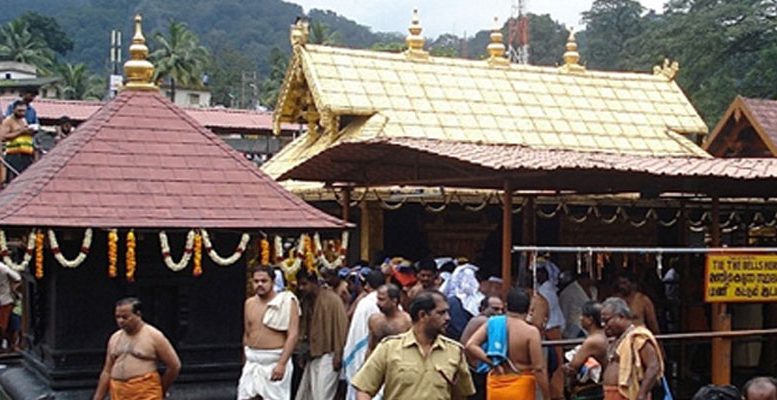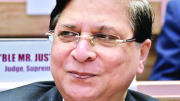The Supreme Court on Friday referred the question of restrictions on entry of women to the Sabarimala temple in Kerala to a Constitution bench. A three-judge bench of Chief Justice Dipak Misra and Justices R Banumathi and Ashok Bhushan also framed five questions of law which it wants the Constitution bench to address.
The questions include:
- “Whether the exclusionary practice, which is based upon a biological factor exclusive to the female gender, amounts to “discrimination”, and thereby violates the very core of Articles 14, 15 and 17 and not protected by ‘morality’, as used in Articles 25”.
- Whether it is an “essential religious practice” under Article 25.
- Whether a “religious institution can assert a claim in that regard under the umbrella of right to manage its own affairs in matters of religion”.
The court had reserved its order in the matter in February this year and asked various parties to file questions that should referred to the larger bench. The petition filed by the Indian Young Lawyers Association has challenged the age-old tradition at the temple and called it discriminatory. The Kerala High Court had upheld the custom in 1991.
Women to the Sabarimala
Senior counsel K K Venugopal, who appeared for the Travancore Devaswom Board, which manages the hill shrine dedicated to Lord Ayyappa, told the court that the issue is complex and involves substantive interpretation of the Constitution under Article 145(3). Under this provision, the minimum number of judges required for answering a reference is five.
He contended that this would require interpretation of Article 26, which deals with the rights of a religious denomination, and Article 25, which guarantees freedom of conscience and free profession, practice and propagation of religion. Discrimination, if any, at the shrine not between men and women, but between women and women, Venugopal said.
He also argued that the matter had already settled by the High Court, and thus the principle of res judicata would apply. (Res judicata isa legal phrase meaning that the issue has already decided by another court, and therefore the present court will dismiss the case before it as being useless.
Located in the forests of the Western Ghats in Kerala’s Pathanamthitta district, the shrine attracts lakhs of pilgrims every year during its annual pilgrimage season. Women below the age of 10 years and above 50 years allowed, but those in the 10-50 age bracket — women in their menstruating phase — traditionally not allowed in the shrine. This flows from the temple legend, according to which the Lord a celibate and had himself placed the restrictions.





Be the first to comment on "Supreme Court refers issue to larger bench,On entry to all women in Sabarimala temple"